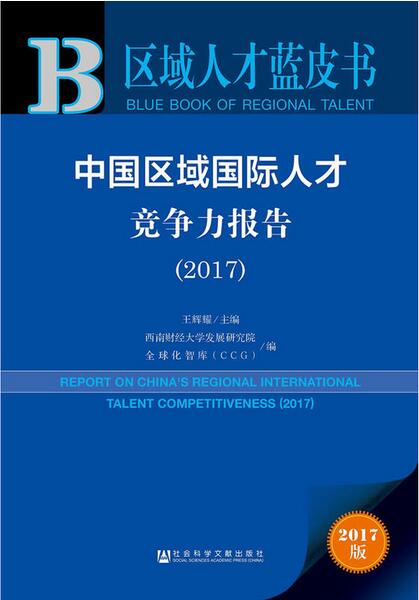全球化(globalization)一词,是一种概念,也是一种人类社会发展的现象过程。全球化目前有诸多定义,通常意义上的全球化是指全球联系不断增强,人类生活在全球规模的基础上发展及全球意识的崛起。国与国之间在政治、经济贸易上互相依存。全球化亦可以解释为世界的压缩和视全球为一个整体。二十世纪九十年代后,随着全球化势力对人类社会影响层面的扩张,已逐渐引起各国政治、教育、社会及文化等学科领域的重视,引发大规模的研究热潮。对于“全球化”的观感是好是坏,目前仍是见仁见智,例如全球化对于本土文化来说就是一把双刃剑,它也会使得本土文化的内涵与自我更新能力逐渐模糊与丧失。
- CCG南方国际人才研究院
- CCG北方国际人才研究院
- CCG一带一路研究所
- CCG世界华商研究所
- CCG数字经济委员会
- CCG南方国际人才研究院图片
- CCG北方国际人才研究院图片
- CCG世界华商研究所图片
- CCG一带一路研究所图片
- CCG数字经济委员会图片
- 成为系列论坛会员
- 成为系列论坛会员联系
- 概况介绍
- 兼职研究员
- 未分类
- 概况
- 全球化
- 全球治理
- 美国
- 国际人才政策
- 中美贸易
- 国际教育理念与政策
- 中国开放指数
- 新闻动态
- CCG品牌论坛
- 中国与全球化论坛
- 学术委员会专家
- 主席/理事长
- 中文图书
- 品牌论坛
- 研究合作
- 重点支持智库研究与活动项目
- 概况视频
- 主任
- 香港委员会名誉主席
- 关于
- 团队
- 国际关系
- 国际组织
- 加拿大
- 华人华侨
- 国际贸易
- 来华留学
- 区域与城市
- 媒体报道
- 二轨外交
- 中国企业全球化论坛
- 高级研究员
- 资深副主席
- 英文图书
- 圆桌研讨
- 建言献策
- 概况手册
- 副主任
- 理事申请
- 香港委员会名誉副主席
- 顾问
- 研究
- 国际移民与人才流动
- 区域合作
- 欧洲
- 中国海归
- 来华投资
- 出国留学
- 大湾区
- 活动预告
- 名家演讲
- 中国全球智库创新年会
- 特邀高级研究员
- 副主席
- 杂志
- 名家演讲
- 媒体采访
- 年报
- 秘书长
- 企业理事
- 香港委员会主席
- 国际顾问
- 国际贸易与投资
- 一带一路
- 亚洲
- 留学生
- 对外投资
- 国际学校
- 动态
- 名家午餐会
- 中国人才50人论坛
- 特邀研究员
- 理事长
- 媒体采访
- 文章投稿
- 副秘书长
- 活动支持
- 香港委员会副主席
- 国际教育
- 非洲
- 数字贸易
- 活动
- 智库圆桌会
- 常务理事
- 智库访谈
- 国际合作
- 总监
- 中国留学人员创新创业论坛
- 研究员
- 研究支持
- 香港委员会常务理事
- 国内政策
- 拉美
- 专家
- 理事
- 直播
- 捐赠支持
- 主管
- 中国国际教育论坛
- 个人捐赠
- 前瞻研究
- 澳洲
- 咨询委员会
- 企业理事
- 其他
- 捐赠联系
- 中东
- 成为理事
- 研究报告
- 建言献策
- 出版物
- 理事申请联系
- 智库研究
- 音视频专区
- 联系我们
- 观点
- 捐赠
- 工作机会
- 香港委员会
-

魏建国:中国新改革开放措施将出 自贸港成最大惊喜
专家简介
2018年2月24日 -

北京国际人才生活指数 | CCG研究
2017年12月15日 -

许振凌:三亚将以最好的资源与服务吸引最好的投资
许振凌,海南省三亚市副市长
2017年11月20日 -

He Weiwen:Regional disparity to narrow through technology, reform and opening-up
He Weiwen, a senior fellow at Center for China and Globalization(CCG).
2017年10月26日 -

Harvey Dzodin: Guangzhou goes global
The Guangzhou Canton tower at night China took another giant step in going global again by beginning the hundred-day countdown to the renowned Fortune Global Forum (FGF) to be held December 6th to 8th with the CEOs of the world’s most prestigious companies in attendance. Perhaps it’s no coincidence that Guangzhou’s leaders successfully won the bid to host the Forum as trade and commerce are in its very DNA. Long before the 21st century Maritime Silk Road was announced in 2013, this storied city, once known as Canton, with a history of more than 2,200 years had its own Maritime Silk Road for longer than a millennium. China’s third largest city has a rich past, an increasingly prosperous present and a bright future as the pearl of the Pearl River Delta. Winning the FGF is important to Guangzhou, Guangdong Province and all China because for three days, not only will the eyes of the world will be focused on the proceedings but global business leaders will be able to see first hand how Guangzhou has matured into a world city not only famous for the twice-yearly Canton Fair, WeChat and NetEase, but increasingly as a high-tech hub leader in the next generation of IT in fields such as artificial reality, virtual reality, and voice recognition, in addition to biotechnology. In fact, 13 of China’s 50 most innovative companies are Guangzhou-based. And Forbes China List of Best Cities for Business has been led by Guangzhou for five of the last six years. The theme of the FGF is “Openness and Innovation: Shaping the Global Economy.” Guangzhou leaders have conducted roadshows to promote the FGF in more than a dozen world cities. While common in private enterprise, to me this shows the foresight of leaders to maximize participation and publicity for the Forum and its host city. Guangzhou, the world’s fastest growing megacity according to the UN Development Program, has set its sights high. According to Mayor Wen Guohui : “The opening of the 2017 FGF in Guangzhou represents the recognition of the city’s socioeconomic development and expectation of our beloved city. We will strive to create a constructive platform for dialogue and cooperation for all participants to explore the theme of openness and innovation, which in turn will bring about a new momentum to world economic growth and contribute to shaping the global economy.” Guangzhou was the starting-point of the Maritime Silk Road’s South China Sea Route, crossing the Indian Ocean and countries around the Persian Gulf. Goods traded consisted mainly of silk, china and tea, while imports included a variety of spices, flowers and glass. The route was first used in the Qin and Han Dynasties, and grew in popularity from the Three Kingdoms Period (220-280) to the Sui Dynasty (581–618). I first visited Guangzhou in 1988, but like most of China, it looked and felt like it could have been centuries earlier. When I next returned in 2004, it was a vibrant trading city. And to host the Asian Games in 2010, Guangzhou had a complete makeover of parks, sports facilities and the city’s new landmark 600 meters high modernistic Canton Tower. I was impressed by the hundred-day countdown ceremony for the Fortune Global Forum for two main reasons. First, government leaders showed that it could plan for any contingency when it moved the venue on 24 hours notice from a tourist boat to watch the countdown begin on the surface of the Canton Tower to inside the tower itself due to Typhoon Pakhar. What most impressed me was that virtually the entire mercifully brief ceremony was given over to inspirational speeches by several teenage Guangzhou Citizen-Messengers who personally invited global business titans to Guangzhou. They clearly are future leaders who will soon take over piloting their city into its bright future, continuing on the path of globalization Guangzhou has been following for more than 2,200 years. About Author Dr. Harvey Dzodin, a non-resident researcher of the Center for China and Globalization(CCG). He was vice president of the ABC TV Network in New York and Legal Counsel in the Jimmy Carter administration.
2017年9月7日


